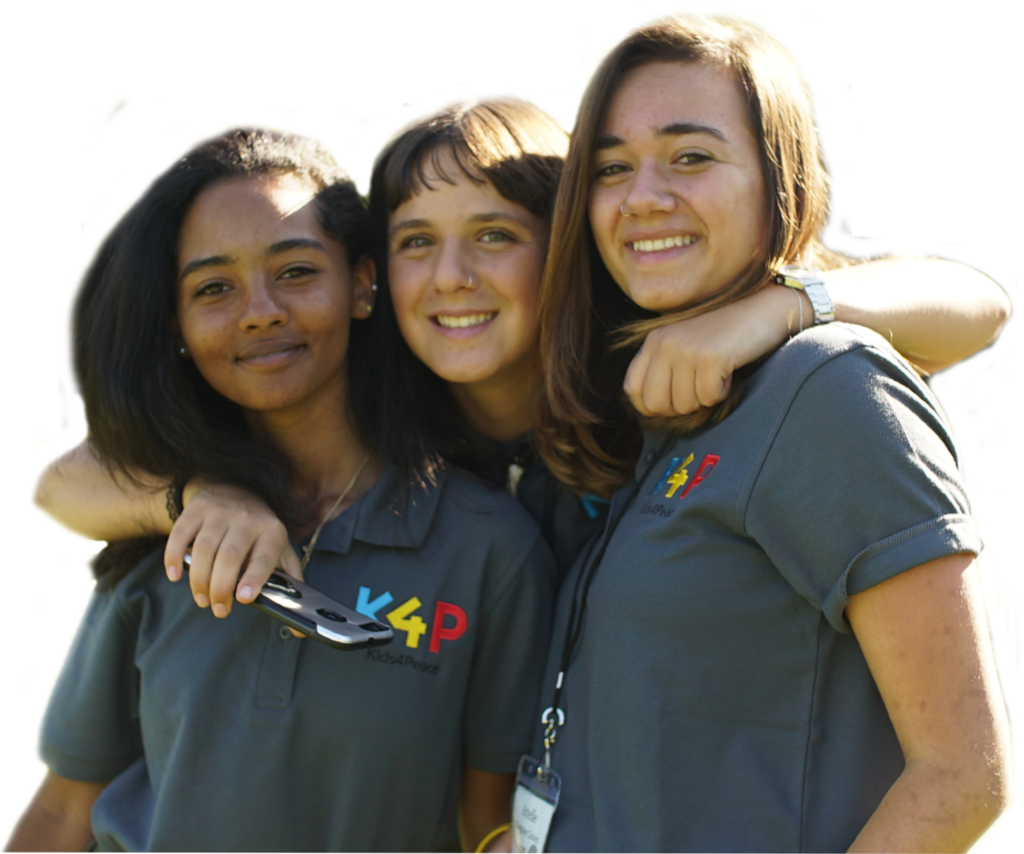
[author] [author_image timthumb=’on’]https://www.seedsofpeace.org/wp-content/uploads/2020/09/Hannah.jpg[/author_image] [author_info]Hannah Hochkeppel, Kids 4 Peace Program Director[/author_info] [/author]
Hi, my name is Hannah Hochkeppel. I’m the Program Director at Kids4Peace . I wanted to introduce myself and K4P to the PTU community because our two organizations are launching into a new collaboration! We’re combining our expertise in multi-faith dialogue with youth and with adults to bring whole communities into conversation through our new Let’s Go Together program.
K4P and PTU have some history together. In my early days with K4P, we brought Palestinian and Israeli youth together at Camp Brotherhood in Mount Vernon, which was run by PTU’s predecessor, the Treacy Levine Center. Both our organizations have remained dedicated to convening multi-faith encounters, and we have also changed to meet the new challenges of our time. Kids4Peace joined forces with Seeds of Peace, fostering a global network of young changemakers that carry interfaith dialogue into their schools and communities, including a community based here in Seattle. Paths to Understanding no longer operates at a physical camp but has spread its work and vision to communities across the region, and beyond through their online community.
As we prepare to launch our new collaboration, I’d like to share a couple stories from my work to show how our young people are embracing friends from all traditions. I think we adults could learn a thing or two from them.
Fun and Learning Together
A few years ago, one of our Muslim youth participants was sharing with her peers that Muharram, the Islamic New Year, had taken place the day before. She quickly explained what the day was commemorating, and the difference between how this day is observed in Shia and Sunni Islam. Her Jewish friend chimed in and shared that she had just celebrated the Jewish new year, and that it was the year 5778, asking what year it was for Muslims. Maliha shared that it was the year 1439 for Muslims, sparking a conversation between the whole group about which religion was older, how each came into being, and how the calendars in each tradition worked. All of this exchange was possible because of the relationships that these youth had built over days spent in dialogue, visits to each other’s houses of worship to learn and share experiences, and most importantly just having fun together. The two parts of the story I find most amusing, and also most meaningful, are that this whole conversation took place over a large text message group chat and it was imbedded in the midst of a very serious planning session for their group Halloween costume!
Sharing Traditions
Imagine youth who have their Bar or Bat Mitzvah with a whole contingent of Jewish, Christian, and Muslim youth present to support and often take part in the service. Youth who invite their friends up to the Bimah to read an interfaith prayer for peace, friends who are included in the B’nai Mitzvah parties and celebration.
When attending a church service, imagine youth who intentionally and strategically position themselves between their friends to help them follow along, know when to sit or stand, and quietly point out parts of the service or answer questions for their friends from other traditions. When attending a Shabbat service, making sure that their friends know that the book is read from right to left instead of left to right. After observing Jummah prayer, explaining to their friends the words and motions that make up the parts of the prayers.
Imagine a Sukkah, a temporary shelter built in the backyard of one of our Jewish youth participants to celebrate the holiday of Sukkot – a Sukkah that was intentionally made bigger that year so that that youth can invite all of their friends from different faith traditions to celebrate with them and learn about this piece of their tradition.
The beautiful thing is that none of these things are imaginary – they are all stories of things that happen when we invest time and energy into building relationships, learning about identities and traditions directly from one another.
